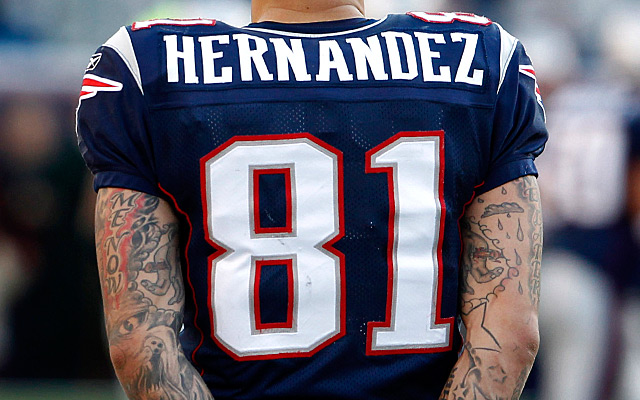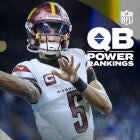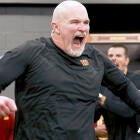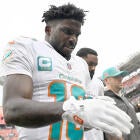Floyd Reese worked as a senior football adviser for the Patriots from 2009-2012. Before that, he was the longtime general manager and executive vice president of the Titans (and Oilers, before them). Now retired from the NFL, Reese hosts the Sports Night radio show on Nashville's 102.5 FM. On Wednesday, he said that the Patriots knew before they drafted Aaron Hernandez in 2010 that the tight end had off-field problems.
"We knew he had some issues prior," Reese told TheMMQB.com's Greg Bedard. "[Former Florida coach] Urban Meyer and Bill [Belichick] were very, very close, and I think Urban convinced Bill that, you know, that these things weren't going to be an issue. When we structured his first contract, his rookie contract, we probably had 75 percent of the money in the contract set up so that he would only make it if he stayed out of trouble, didn't miss meetings, was always there doing the right thing. And for the period of the original contract, he lived up to every bit of it. So it turned out well. Of course, after that, after he signed [his $40 million contract extension], things kind of went awry."
Things actually went horribly awry. Hernandez was convicted of first-degree murder this week in the shooting death of Odin Lloyd, and he faces another possible trial in the murder of two other men in Boston.
In April 2010, a week before the Patriots drafted Hernandez in the fourth round, Hernandez sent the organization this letter in the hopes of clearing up any concerns about his alleged marijuana use while he was at the University of Florida.
Hernandez sounded just as sincere several years later, shortly after the Patriots signed him to a $40 million contract extension.
"This is a place that, not only did it change my future from them paying me, but it changed me as a person," Hernandez told Comcast Sportsnet at the time, "because you can't come [to the Patriots] and act reckless and do your own stuff. That was one of the reasons that I came here -- might've acted the way I wanted to act. But you get changed by Bill Belichick's way. And you get changed by the Patriots way. And now that I'm a Patriot, I have to start living like one and making the right decisions for them."
After Hernandez was arrested in June 2013, Patriots owner Robert Kraft said the organization was "duped" by the tight end.
"No one in our organization was aware of any of these kind of connections," Kraft said at the time. "If [Herandez shooting Lloyd is] true, I'm just shocked. Our whole organization has been duped."
According to a Wall Street Journal story from 2013, shortly before the 2010 draft, a scouting service prepared a psychological profile available to every team that described Hernandez as "living on the edge of acceptable behavior," and that he could become a "problem" for any team that signs him.
Even Ray Lewis, a future Hall of Famer, current NFL analyst for ESPN, and the man once charged with two counts of murder before striking a deal and pleading guilty to obstruction of justice, said that the Patriots should have had an idea that Hernandez's off-field baggage might catch up to him.
"New England had to know something, just like 31 other teams had to know something about Aaron Hernandez's background, and that's your red flag," Lewis said in September 2013, during a roundtable discussion with ESPN co-workers. "Now, it's up to you to say, 'You know what, I'm still going to try that.'"
The off-field concerns were enough for the Colts and Bengals to take Hernandez off their draft boards, but the Patriots have had success with players who've struggled to walk the straight and narrow and ended up taking Hernandez with the 113th overall pick.
"When he was at Florida, he had some issues there too, there were some things that went on," Reese said Wednesday night. "We all knew about it. It was just from our standpoint, we were getting a first-round talent in the fourth round under a contract that was going to keep him in line or it wasn't going to cost us a penny. The real downside for us was the fourth-round pick. The upside was he ending up being an All-Pro, for a while, until he got his second contract."
And now Hernandez, 25, will spend the rest of his life in prison.

![[object Object] Logo](https://sportshub.cbsistatic.com/i/2020/04/22/e9ceb731-8b3f-4c60-98fe-090ab66a2997/screen-shot-2020-04-22-at-11-04-56-am.png)

















